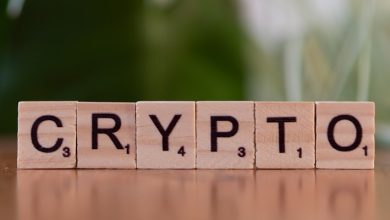What is Mining? How Cryptocurrencies Are Created

- Understanding the concept of mining in the context of cryptocurrencies
- The process of creating digital currencies like Bitcoin through mining
- Exploring the role of miners in the cryptocurrency ecosystem
- A closer look at the computational power required for mining cryptocurrencies
- The impact of mining on the security and decentralization of cryptocurrencies
- Challenges and controversies surrounding the practice of mining in the digital currency space
Understanding the concept of mining in the context of cryptocurrencies
Mining in the context of cryptocurrencies refers to the process of validating transactions and adding them to the public ledger known as the blockchain. This process is essential for the creation of new digital currencies such as Bitcoin and Ethereum.
Miners use powerful computers to solve complex mathematical problems that verify transactions on the network. Once a miner successfully solves the problem, they are rewarded with a certain amount of cryptocurrency. This reward serves as an incentive for miners to continue validating transactions and securing the network.
The concept of mining plays a crucial role in maintaining the integrity and security of cryptocurrencies. Without miners, the network would be vulnerable to attacks and fraudulent activities. By participating in the mining process, individuals help to ensure the decentralization and transparency of digital currencies.
Overall, mining is a fundamental aspect of the cryptocurrency ecosystem. It not only facilitates the creation of new coins but also helps to validate transactions and secure the network. As the popularity of cryptocurrencies continues to grow, the role of miners will become increasingly important in ensuring the stability and reliability of digital assets.
The process of creating digital currencies like Bitcoin through mining
The process of creating digital currencies like Bitcoin through mining involves solving complex mathematical problems using computer hardware. Miners compete to be the first to find the solution to these problems, which requires a significant amount of computational power. Once a miner successfully solves the problem, a new block is added to the blockchain, and the miner is rewarded with a certain number of Bitcoins.
Mining serves two main purposes in the world of cryptocurrencies. Firstly, it helps to secure the network by verifying transactions and adding them to the blockchain in a decentralized manner. This makes it difficult for any single entity to control the network or manipulate the transaction history. Secondly, mining is the mechanism through which new Bitcoins are created and brought into circulation. This process is known as the “block reward” and serves as an incentive for miners to continue supporting the network.
To become a miner, one needs specialized hardware called ASICs (Application-Specific Integrated Circuits) or GPUs (Graphics Processing Units). These devices are designed to perform the complex calculations required for mining more efficiently than traditional computer hardware. In addition to hardware, miners also need to run mining software that connects them to the network and allows them to participate in the mining process.
Overall, mining plays a crucial role in the creation and maintenance of digital currencies like Bitcoin. It is a competitive and energy-intensive process that rewards miners for their contributions to the network. As the popularity of cryptocurrencies continues to grow, mining will remain an essential part of the ecosystem, ensuring the security and integrity of transactions on the blockchain.
Exploring the role of miners in the cryptocurrency ecosystem
The role of miners in the cryptocurrency ecosystem is crucial to the functioning of digital currencies. Miners are individuals or groups who use powerful computers to solve complex mathematical problems that validate transactions on the blockchain network. By doing so, miners secure the network, prevent double-spending, and ensure the integrity of the decentralized system.
Miners are incentivized to participate in this process by receiving rewards in the form of newly minted coins. This process is known as mining, and it is essential for the creation of new cryptocurrencies. Without miners, transactions would not be verified, and the entire system would collapse.
Miners play a significant role in maintaining the security and integrity of the blockchain network. They compete with each other to solve the mathematical puzzles and add new blocks to the chain. This process requires a considerable amount of computational power, electricity, and resources.
A closer look at the computational power required for mining cryptocurrencies
Mining cryptocurrencies requires a significant amount of computational power to solve complex mathematical problems and validate transactions on the blockchain network. This process is crucial for securing the network and ensuring the integrity of the digital currency.
The computational power required for mining cryptocurrencies varies depending on the specific cryptocurrency being mined and the mining algorithm used. Some cryptocurrencies, such as Bitcoin, require a massive amount of computational power due to their Proof of Work (PoW) algorithm, which involves miners competing to solve cryptographic puzzles.
As the difficulty of these puzzles increases over time, miners need more computational power to compete and earn rewards. This has led to the development of specialized hardware, such as ASICs (Application-Specific Integrated Circuits), which are designed specifically for mining cryptocurrencies.
Overall, the computational power required for mining cryptocurrencies continues to increase as more miners join the network and the complexity of mining algorithms grows. This trend highlights the competitive nature of cryptocurrency mining and the importance of having access to powerful hardware to stay competitive in the market.
The impact of mining on the security and decentralization of cryptocurrencies
Mining plays a crucial role in the security and decentralization of cryptocurrencies. By participating in the mining process, individuals or groups are able to contribute to the verification of transactions on the blockchain network. This verification process helps to prevent double-spending and ensures the integrity of the digital currency.
Additionally, mining helps to decentralize the network by distributing the power to validate transactions across a wide range of participants. This decentralization is essential for ensuring that no single entity can control the entire network, making cryptocurrencies more resistant to censorship and manipulation.
However, the impact of mining on the security and decentralization of cryptocurrencies is not without its challenges. As the mining process becomes more competitive, it requires increasingly powerful hardware and consumes a significant amount of electricity. This has led to concerns about the environmental impact of mining activities and the centralization of mining power in the hands of a few large mining pools.
Challenges and controversies surrounding the practice of mining in the digital currency space
The practice of mining in the digital currency space has been met with a number of challenges and controversies. One major concern is the environmental impact of mining, as it requires a significant amount of energy to solve complex mathematical algorithms. This has led to criticisms of cryptocurrencies for contributing to carbon emissions and global warming.
Another issue surrounding mining is the centralization of power among a few large mining pools. This concentration of mining power can potentially lead to a lack of decentralization, which goes against the core principles of cryptocurrencies. It also raises concerns about the security and integrity of the blockchain network.
Moreover, there have been instances of illegal mining activities, such as unauthorized use of computing power or malware to mine cryptocurrencies without the knowledge of the device owner. This not only violates privacy rights but also poses security risks to individuals and organizations.
Regulatory challenges have also emerged in the mining space, as governments around the world grapple with how to classify and tax cryptocurrencies. The lack of consistent regulations has created uncertainty for miners and investors alike, leading to a volatile market environment.



